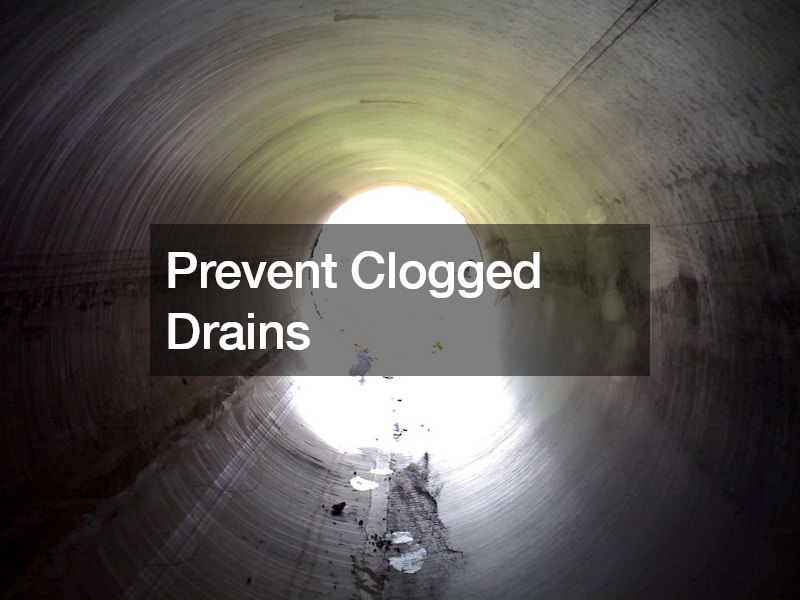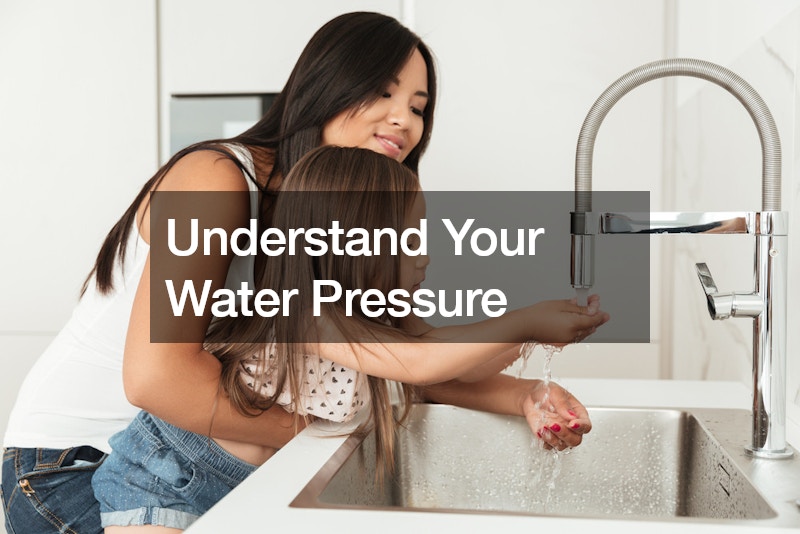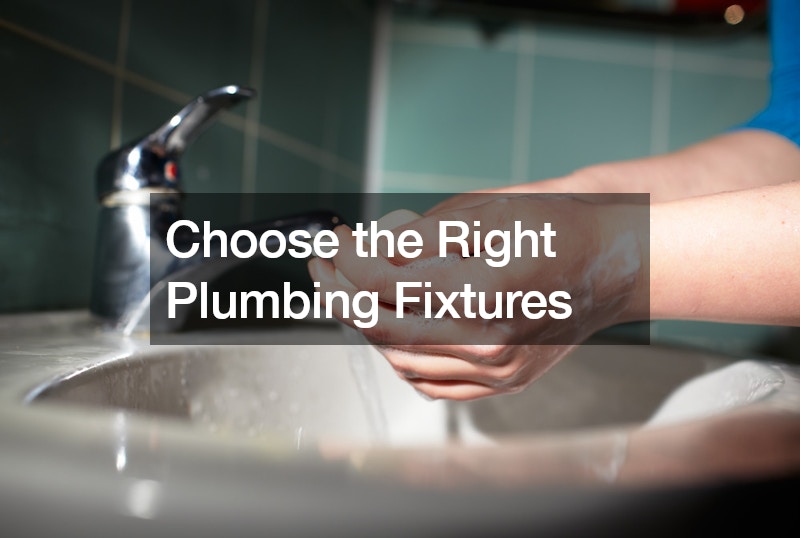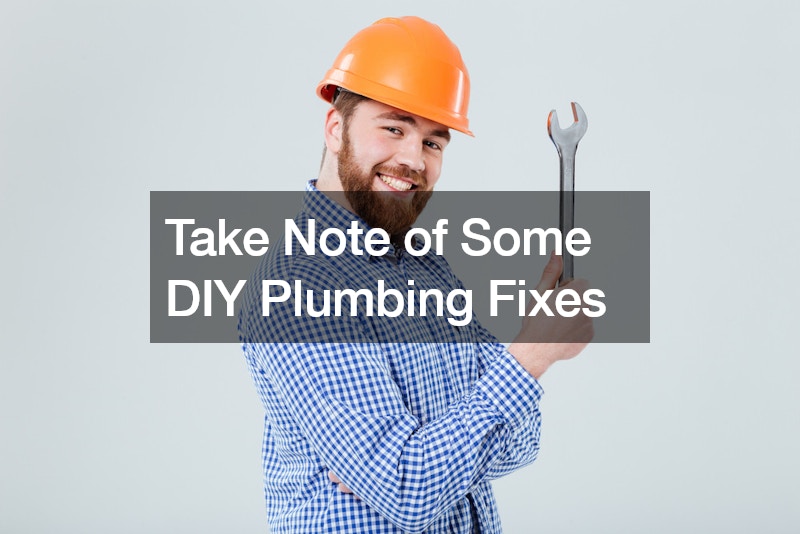

A home has several components that affect its well-being, comfort level, and more. As a homeowner, it’s your priority to make sure that all your home’s different parts work as they’re supposed to. One of the easiest ways to keep home components working well is by upgrading them. Of the different home components, your home’s plumbing system is one of the most important parts. It affects how you clean yourself, how you clean the rest of your home, how you dispose of waste, how you ingest water, and more. You want to make sure that it’s in the best shape it can be in.
It’s easy to neglect your home’s plumbing and let issues arise. Worse yet, it can be tempting to ignore issues once they emerge, which only leads to them becoming worse over time. Regardless of where your home is or how advanced it is, your home’s plumbing system requires maintenance to keep it functioning as it should. Maintenance might seem like a hassle you’d rather ignore, but it’s important to stay on top of it. Fortunately, plumbing upgrades can make your maintenance much easier and far less stressful.
Ensuring your plumbing system runs smoothly and efficiently is crucial for maintaining a comfortable and functional home. Faulty plumbing can lead to a myriad of issues including water damage, costly repairs, and unnecessary stress. By proactively taking steps to upgrade and maintain plumbing, you can save yourself time, money, and hassle in the long run. Here, we have compiled 10 convenient ways to upgrade and maintain your plumbing that not only enhance the longevity of your system but also improve its overall performance.
From preventing clogged drains to choosing the right plumbing fixtures, these strategies will help keep a plumbing system in top shape. Proper maintenance and timely upgrades can prevent unexpected plumbing emergencies, enhance efficiency, and ensure a clean water supply. Read on to discover practical tips and expert advice to manage plumbing effectively. With the support of a reliable local plumber and some DIY knowledge, a plumbing system will remain robust and reliable for years to come. You’ll certainly be glad you took the time to research.
1. Prevent Clogged Drains

Clogged drains are one of the most common plumbing issues. They can lead to slow-draining water, unpleasant odors, and even potential water damage if not addressed promptly. To prevent clogged drains, regular drain cleaning is essential. This can involve using drain screens to catch debris and being cautious about what you rinse down your sinks and showers.
Consider hiring a local plumbing service for professional drain cleaning. They can provide services such as hydro-jetting, which uses high-pressure water to clear out stubborn blockages. Additionally, enzymatic drain cleaners can be used regularly to prevent buildup inside your pipes. These methods are not only effective but also safe for a plumbing system.
Another proactive approach is educating all household members on what should and shouldn’t go down the drain. Avoid rinsing grease, coffee grounds, and fibrous foods down the kitchen sink. In the bathroom, use drain covers to catch hair and soap scum. By taking these steps, you can reduce the frequency of clogs and maintain plumbing in optimal condition.
2. Use the Best Materials for Plumbing Pipes
The materials you choose for plumbing pipes significantly impact the longevity and efficiency of your plumbing system. Modern plumbing materials such as PEX (cross-linked polyethylene) and CPVC (chlorinated polyvinyl chloride) are known for their durability and flexibility. These materials are resistant to scale and chlorine, making them superior to traditional metal pipes.
Consulting with a local plumber can help you make informed decisions about the best materials for your needs. They can provide insights into which materials are best suited for your specific requirements, whether you’re dealing with high water pressure or the need for flexibility in tight spaces. Properly installed by a professional, these materials can drastically reduce the likelihood of leaks and bursts.
If you’re considering a plumbing upgrade, it’s also worth looking into copper pipes. Copper is highly durable and has been used in plumbing for decades. It’s resistant to corrosion and can handle high pressure. Upgrading plumbing materials with the help of a local plumbing contractor can pay off in the form of reduced maintenance costs and a more reliable plumbing system.
3. Detect Leaks Ahead of Time
Undetected leaks can cause significant damage to your home and lead to water wastage. Fortunately, there are several ways to detect leaks before they become a major problem. One effective method is regular inspections by a local plumbing service. Professional plumbers have the expertise and tools to pinpoint even the smallest leaks, ensuring they are repaired promptly.
Another useful tool for leak detection is a water meter. By monitoring your water usage, you can identify unusual spikes that may indicate a hidden leak. Shut off all water fixtures in your home and note the meter reading. After a few hours, recheck the meter reading; any change may suggest a leak within your system.
Homeowners can also invest in water leak detectors and automatic water shutoff valves. These devices can send alerts to your smartphone if a leak is detected, allowing you to address the issue immediately. Early detection not only saves water but also prevents costly water damage to plumbing and home structures.
4. Understand Your Water Pressure

Water pressure plays a crucial role in a plumbing system’s functionality. Too high pressure can damage pipes and fixtures, while too low pressure can affect appliances that rely on water. The ideal water pressure for most homes ranges between 40 to 60 PSI (pounds per square inch).
Residential plumbers can help you accurately measure and adjust your water pressure. If your pressure is too high, installing a pressure regulator can protect your pipes and fixtures. Conversely, if your pressure is too low, a plumber can identify and address underlying issues, such as clogged pipes or faulty pressure regulators.
Maintaining optimal water pressure not only extends the life of your plumbing but also improves your overall water usage experience. Regular checks by a local plumbing service ensure that your water pressure remains consistent, preventing the inconvenience of sudden pressure fluctuations.
5. Save Water With Plumbing
Conserving water is not only environmentally responsible but also helps in reducing your utility bills. There are several ways to make plumbing more water-efficient. Installing low-flow fixtures, such as faucets, showerheads, and toilets, can significantly reduce water usage without compromising performance.
Another effective measure is fixing leaks promptly. Even minor leaks can waste a considerable amount of water over time. Routine inspections by a plumbing company can help identify and repair leaks, ensuring a plumbing system operates efficiently. Additionally, upgrading to water-efficient appliances like dishwashers and washing machines can contribute to significant water savings.
Consider implementing rainwater harvesting systems or greywater recycling for non-potable uses like irrigation. These systems reduce the demand on your main water supply, contributing to water conservation efforts. By adopting these practices, you can make a positive impact on the environment while keeping plumbing in top shape.
6. Notice the Signs of Plumbing Problems
Early detection of plumbing problems can prevent minor issues from escalating into costly repairs. Pay attention to common signs of plumbing problems such as slow drains, unusual odors, or water stains on walls and ceilings. These indications often point to underlying issues that require immediate attention.
Another red flag to watch for is fluctuating water pressure, which could signal blockages or leaks within your plumbing system. If you hear strange sounds like gurgling or banging coming from your pipes, it’s advisable to contact a local plumbing service. These noises often indicate air in the pipes or other issues needing professional diagnosis and repair.
Engaging sewer cleaning services can help address issues beyond the visible signs. Regular maintenance such as sewer line inspections ensures that your entire plumbing system, from drains to sewers, remains in good working condition. Staying vigilant and addressing problems early can save you from extensive and expensive plumbing repairs in the future.
7. Choose the Right Plumbing Fixtures

Upgrading your plumbing fixtures can enhance both the aesthetic appeal and functionality of your plumbing system. Modern fixtures often come with water-saving features, contributing to efficiency and cost savings. When selecting new fixtures, consider both style and practicality to ensure they meet your needs.
Consulting with a local plumbing contractor can provide valuable insights into the latest fixture options. Experienced plumbers can recommend high-efficiency fixtures that complement your home’s design while optimizing water usage. Installing fixtures like touchless faucets or dual-flush toilets can significantly reduce water consumption.
Quality matters when it comes to plumbing fixtures. Investing in reputable brands known for durability and performance ensures long-term satisfaction and reduces the need for frequent replacements. By choosing the right fixtures with the guidance of a professional, you can improve the overall efficiency and appearance of your plumbing system.
8. Consider the Importance of Regular Plumbing Inspections
Regular plumbing inspections are essential for maintaining a reliable and efficient plumbing system. Inspections help identify potential issues before they become severe, allowing for timely repairs. Scheduling annual inspections with a dependable drain service ensures that all components of your plumbing are thoroughly checked.
Professional plumbers can inspect various aspects of plumbing, including pipes, fixtures, water heaters, and sewer lines. They utilize advanced tools such as cameras to detect hidden leaks, blockages, and other issues. Regular inspections provide peace of mind, knowing that your system is in optimal condition.
In addition to professional inspections, homeowners can perform basic visual checks to spot potential problems. Look for signs of corrosion, leaks, or unusual water stains around pipes and fixtures. Together with professional inspections, these routine checks help maintain the longevity and efficiency of your system.
The Power of Plumbing Maintenance Contracts
Unfortunately, there are plenty of plumbing problems that can’t be solved by DIY alone. When something is out of your scope of knowledge, you may cause more harm trying to fix it. If you’re experiencing repeat leaks, loud noises, or problems with your water safety, it’s time to call in the experts. Fortunately, there are countless plumbing companies that offer convenient agreements that ensure that your system is checked up on regularly. A maintenance agreement from a trusted plumbing business can go a long way in helping your peace of mind as well as your wallet. When small problems are addressed quickly and correctly, you can avoid larger issues down the road!
When you’re on the hunt for a reputable plumbing contractor, look for one that offers convenient, easy-to-handle maintenance contracts. If you think the price is a bit out of your budget, don’t hesitate to ask what the agreement includes, taking note of other expenses you can avoid when opting for regular inspections. One of the best things about plumbing maintenance contracts is that you can often forget about them, and forget about your plumbing issues, too! To learn more about plumbing tips to help you during the winter season, please continue reading the informative advice below.
9. Winterize Plumbing Systems
Winterizing your plumbing system is crucial to prevent pipes from freezing and bursting during cold weather. Start by insulating exposed pipes, especially those in unheated areas like basements and attics. Pipe insulation helps maintain a consistent temperature, reducing the risk of freezing.
Disconnect and drain outdoor hoses and faucets to prevent ice buildup. Installing frost-free hose bibs can provide additional protection against freezing temperatures. If you’re unsure about the best winterization practices, consult a general contractor or local plumber for expert advice and assistance.
During extreme cold, keep cabinet doors open to allow warm air to circulate around pipes, and consider letting faucets drip to prevent water from freezing inside the pipes. Implementing these winterization strategies can safeguard your plumbing system against potential cold weather damage, ensuring it remains functional year-round.
10. Take Note of Some DIY Plumbing Fixes

Knowing how to perform basic DIY plumbing fixes can save you time and money on minor issues. Simple tasks like unclogging a drain, fixing a leaky faucet, or replacing a showerhead are manageable with the right tools and knowledge. However, it’s important to know your limits and when to call a professional.
For DIY drain cleaning, a plunger or a drain snake can effectively clear minor clogs. If you encounter persistent clogs, it may be time to seek assistance from a residential plumber. For faucet repairs, having a basic plumbing toolkit with items like wrenches and washers can make the task easier. Online tutorials and step-by-step guides are valuable resources for minor plumbing fixes.
While DIY fixes are useful, always prioritize safety and avoid tackling complex plumbing issues without professional help. Consulting residential contractors for more significant plumbing tasks ensures repairs are done correctly and safely. Balancing DIY skills with professional support allows you to maintain your plumbing effectively and prevent further complications.
11. Install Your Own Water Well
Taking advantage of nature by tapping into the water table right below your home is a great way to upgrade your home’s plumbing. By installing a water well tank near your home, you can easily have your own private water resource. This lets you part ways with relying on big companies for your water supply. Not only can this save you money, but it can be more reliable, too! You can also use a more natural form of water filtration to avoid the chemical filtration that public water companies use. This can be better for your health and your plumbing system. By drilling your own water well, you’ll soon recognize the many benefits it offers. From better-tasting water to a more steady and resourceful supply, you’ll be grateful to have your own personal water supply.
To get started with drilling a water well, it’s best to work with professionals. A plumbing company will have the right tools and expertise to get the tank installed and set up correctly. Before you know it, your home will be equipped with a private water supply that’s built and designed just for you. You can discuss more with a local plumbing expert to learn more about the benefits and process of installing a water well tank.
In summary, maintaining and upgrading your plumbing system is crucial for a comfortable and efficient home. From preventing clogs and detecting leaks to choosing the right fixtures and winterizing your system, these steps help ensure your plumbing operates smoothly. Regular inspections and professional support from local plumbers play a vital role in sustaining your system’s health. By adopting these strategies, you can save time, money, and hassle, keeping your plumbing system in top condition for years to come.

